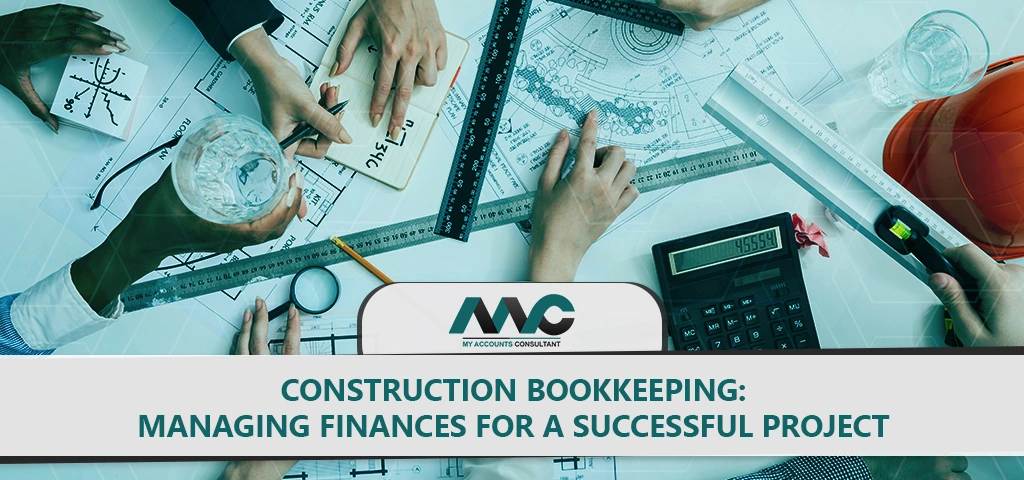
In the world of construction, where every project requires meticulous planning and execution, proper bookkeeping stands as a cornerstone of success. Effective construction bookkeeping ensures that projects stay on track financially, allowing contractors and builders to maintain control over expenses, monitor cash flow, and make informed decisions. In this article, we'll delve into the essential aspects of construction bookkeeping that every professional in the industry should be well-versed in.
Introduction
In the realm of construction, managing finances goes beyond just ensuring a project's profitability. It's about maintaining a delicate balance between expenditures and income to keep projects running smoothly and stakeholders satisfied.
Why Construction Bookkeeping Matters
Effective bookkeeping serves as the bedrock for financial transparency, allowing stakeholders to access accurate data at any given point. This transparency fosters trust and collaboration among project participants and reduces the chances of financial disputes.
Key Principles of Construction Bookkeeping
Accurate recording, classification, and organization of financial transactions are fundamental principles of construction bookkeeping. This includes categorizing expenses by project phase and maintaining separate accounts for each project.
Setting Up Your Bookkeeping System
Selecting the right accounting method (cash or accrual) and establishing a clear chart of accounts tailored to construction projects are crucial steps to streamline the bookkeeping process.
Tracking Expenses: Materials and Labor
Effectively tracking expenses, particularly those related to materials and labor, allows project managers to compare actual costs against estimates and adjust budgets accordingly.
Managing Invoices and Payments
Timely and accurate invoicing, along with a well-structured payment collection process, helps maintain steady cash flow and prevents payment delays that could disrupt project progress.
Budgeting and Forecasting
Thorough budgeting and financial forecasting enable construction professionals to anticipate expenses, plan for contingencies, and ensure that projects remain financially viable from start to finish.
Dealing with Change Orders
Change orders are inevitable in construction projects. Proper bookkeeping facilitates the tracking of changes, associated costs, and their impact on the overall budget.
Cash Flow Management
A steady cash flow is vital for meeting day-to-day project expenses. Construction bookkeeping helps identify periods of high and low cash flow, allowing for effective resource allocation.
Tax Planning for Construction Projects
Strategic tax planning can significantly impact a project's bottom line. Understanding tax implications and leveraging available deductions can lead to substantial savings.
Choosing the Right Accounting Software
Investing in the right accounting software tailored to the construction industry simplifies bookkeeping tasks, enhances accuracy, and provides real-time insights into financial data.
Hiring a Professional Bookkeeper
For complex projects, outsourcing bookkeeping to professionals with construction expertise ensures compliance, accurate financial reporting, and better decision-making support.
Common Bookkeeping Mistakes to Avoid
From failing to reconcile accounts to overlooking documentation, we explore the common bookkeeping pitfalls construction professionals should steer clear of.
Benefits of Effective Bookkeeping in Construction
Efficient bookkeeping leads to reduced financial stress, better project management, improved cost control, and enhanced profitability – all contributing to a successful construction endeavor.
Conclusion
In the world of construction, where financial precision is paramount, effective bookkeeping is not just an administrative task – it's a strategic imperative that directly influences project outcomes.
Contact us here for a Construction Bookkeeping solution now!
Frequently Asked Questions (FAQs)
1. What is construction bookkeeping?
Construction bookkeeping involves the systematic recording and management of financial transactions related to construction projects.
2. How does construction bookkeeping differ from regular bookkeeping?
Construction bookkeeping requires specific knowledge of construction industry practices, project phases, and expense categorization.
3. What are the benefits of using construction-specific accounting software?
Construction-specific accounting software offers features tailored to the industry, such as job costing, progress billing, and document management.
4. Is hiring a professional bookkeeper necessary for small projects?
While smaller projects might not require full-time bookkeeping, hiring a professional on a part-time basis can still ensure accuracy and compliance.
5. How does effective bookkeeping contribute to project success?
Effective bookkeeping provides real-time insights, prevents financial discrepancies, and enables informed decision-making, ultimately leading to project success.

Get Help Fast!
My Accounts Consultant Helps Accounting & Bookkeeping Services help you save money, better understand your business and find the Accounts problems before they hurt you.